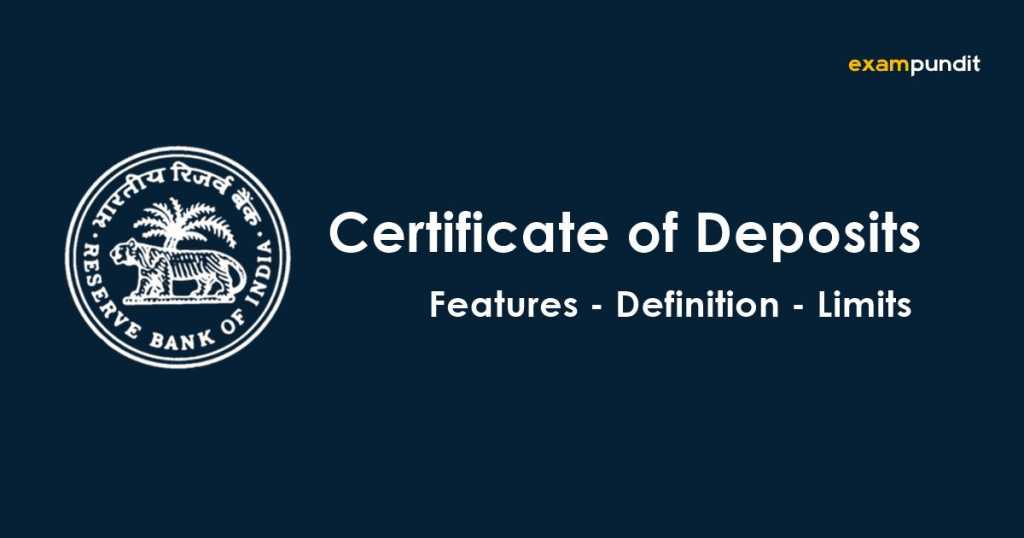Hello and welcome to exampundit. Today we are sharing all the important features and definitions of Certificate of Deposit. You can download the PDF containing all the important information of Certificate of Deposit from below this page.
Certificate of Deposit is an important money market instrument which is important for all the Bank and Insurance Exams.
Definition of Certificate of Deposit
Certificate of Deposit (CD) is a negotiable money market instrument and issued in dematerialised form or as a Usance Promissory Note against funds deposited at a bank or other eligible financial institution for a specified time period.
India introduced Certificates of Deposit (CDs) in 1989 to increase the range of money market instruments in the country and thereby give investors greater flexibility in terms of utilization of their short-term funds.
Features of Certificate of Deposit
Certificate of Deposit (CDs) can be issued by
- scheduled commercial banks {excluding Regional Rural Banks and Local Area Banks};
- select All-India Financial Institutions (FIs) that have been permitted by RBI to raise short-term resources within the umbrella limit fixed by RBI.
Banks have the freedom to issue CDs depending on their funding requirements.
Banks and financial institutions should issue a Certificate of Deposit in a dematerialised form only. However, investors can seek a certificate in physical form as well as per Depositories Act, 1996.
Banks/FIs cannot provide loans against Certificate of Deposits.
Banks have to maintain appropriate reserve requirements, i.e., cash reserve ratio (CRR) and statutory liquidity ratio (SLR), on the issue price of the CDs.
Minimum Amount of Certificate of Deposit
Minimum amount of a CD should be Rs.1 lakh. So, the minimum deposit that could be accepted from a single subscriber should not be less than Rs.1 lakh, and in multiples of Rs. 1 lakh thereafter.
CDs can be issued to
- individuals,
- corporations,
- companies (including banks and PDs),
- trusts, funds, associations, etc.
Non-Resident Indians (NRIs) may also subscribe to CDs, but only on non-repatriable basis. Which should be clearly stated on the Certificate. So, Such CDs cannot be endorsed to another NRI in the secondary market.
Maturity Period of Certificate of Deposit
- The maturity period of CDs issued by banks should not be less than 7 days and not more than one year, from the date of issue.
- Also, FIs can issue CDs for a period not less than 1 year and not exceeding 3 years from the date of issue.
- There is no lock-in period for the CDs.
Click here to Download PDF
If you have liked it, please leave a comment. If you have any suggestion, please mail us at exampundit@gmail.com
We are covering all the important Govt Schemes. Check them out from here.
If you have any query, feel free to contact us on Facebook.
Regards
Team Exampundit





